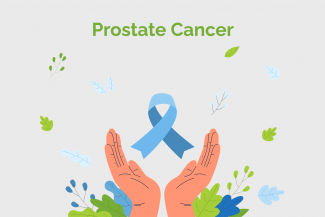
Are you at risk of developing prostrate cancer
Prostate cancer is unusual because it does not behave the same way in all men. Sometimes the cancer will spread rapidly throughout the body and cause death. More often it causes few, if any, symptoms for many years, and the man is more likely to die from other health issues than prostate cancer.
Because of this, the lifetime risk of a man being diagnosed with prostate cancer is 16% (1 in 6) while the lifetime risk of dying from prostate cancer is 3% (1 in 33).
Screening for prostate cancer is more useful if you are at higher risk.
Higher risk factors include:
Age: The risk of having prostate cancer increases steadily with age. It is rare in men younger than 40 years, and 75% of all prostate cancers are found in men over 65.
Race: Prostate cancer is more common in African-American men than Caucasian men. It is less common in Hispanic, Asian and Native American men.
Family History: A family history of prostate cancer, especially in a first-degree relative (father, brother, or son), increases the risk of disease.
Genetic link: Men with mutations in the BRCA genes under the Hereditary breast and ovarian cancer syndrome (HBOC) have an increased risk of prostate cancer. Other genes such as HPC1/2/X, CAPB, ATM and FANCA may also carry a higher risk.
Dietary: While some dietary factors have been associated with prostate cancer, the evidence is still tentative.
- Having low dietary intake of fruits and vegetables may increase the risk of prostate cancer. Some studies have shown that higher consumption of meat, especially red meat or processed meat, increases the risk of prostate cancer
- Lower blood levels of vitamin D may increase the risk of developing prostate cancer.
- One study suggested that high-fat milk consumption (possibly due to the calcium content) may play a role in increasing risk.












